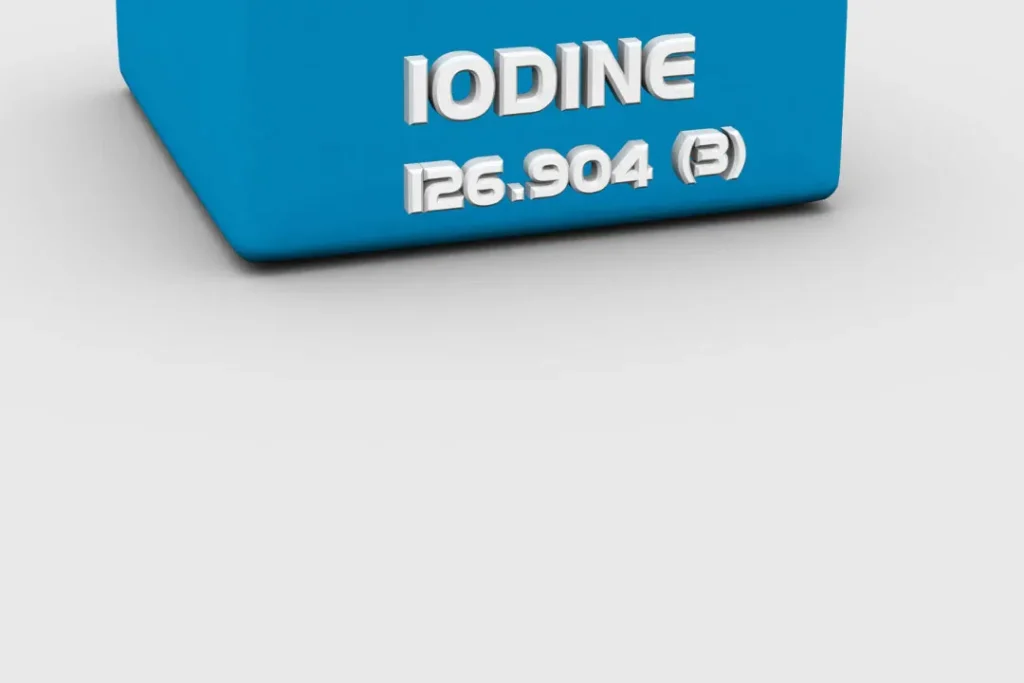The ocean has many different kinds of species with distinct nutritional backgrounds and health advantages. Fucus vesiculosus, sometimes known as bladderwrack, is an organism that has been used traditionally for centuries and is now beginning to acquire more scientific acceptance as a nutritional benefit. Native to the North Sea coastlines, this brown seaweed is not just a marine plant but also a powerful nutritional supplement with a host of health advantages. In this article, we’ll examine the characteristics of fucus vesiculosus, its health advantages, the recommended dosage, any possible side effects, drug interactions, and tips for using it responsibly.
You May Also Like:
5 Great Nootropic Herbs for Focus and Mental Clarity
5 Great Nootropic Herbs for Energy, Focus, and Productivity
Fucus Vesiculosus: Benefits, Dosage, Side Effects, Drug Interactions, and Other Important Information is an original (NootropicsPlanet) article.
The Nature of Fucus Vesiculosus
Fucus vesiculosus is a species of brown seaweed from the fucaceae family. This seaweed is distinguished by its branching fronds with gas-filled bladders that enable the plant to float and absorb sunlight. Fucus vesiculosus is biochemically abundant in many bioactive substances, including polysaccharides (such as fucoidan and alginates), polyphenolic antioxidants, and a sizable amount of important minerals, including iodine. Fucus vesiculosus has a distinctive nutritional composition that serves as the foundation for its numerous health advantages.
Health Benefits of Fucus Vesiculosus
The nutritional makeup of fucus vesiculosus is responsible for its health advantages, with each element having a specific function.
Iodine is essential for maintaining thyroid function and it is one of its important ingredients. To avoid disorders like goiter and hypothyroidism, an appropriate intake of dietary iodine is essential. The thyroid gland requires iodine to manufacture thyroid hormones (T3 and T4).
Fucus vesiculosus contains a complex polysaccharide called fucoidan, which has demonstrated interesting bioactivities. Its anti-inflammatory, anti-coagulant, and anti-cancer characteristics have been emphasized by research. These effects attribute to its ability to alter several cell signaling pathways, obstruct growth factors, and cause cancer cells to undergo apoptosis (cell death).
Additionally, fucus vesiculosus’ polyphenolic components have antioxidant properties that scavenge dangerous free radicals and lower oxidative stress. Potential applications of this antioxidant effect include the prevention of chronic illnesses like cardiovascular disease and neurological disorders.
Alginates, the polysaccharide components found in bladderwrack, also have prebiotic properties that benefit gut health. These substances promote digestion and fermentation in the gut, which encourages the development of virulent bacteria that boost immunity and gut health.

Chemistry of Fucus Vesiculosus
The basis for fucus vesiculosus’s many health advantages is its chemical composition. Fucoidans and alginates, which are polysaccharides, are the most prevalent of these substances. Complex sulfated polysaccharides known as fucoidans are linked to a number of biological processes, such as anticoagulant, antiviral, and anticancer effects. Contrarily, alginates are polysaccharides that form viscous gels and are utilized in the food and pharmaceutical sectors for their ability to stabilize and thicken liquids.
Fucus vesiculosus also includes polyphenolic chemicals in addition to polysaccharides. These substances, often referred to as phlorotannins, have demonstrated considerable antioxidant properties, aiding in the neutralization of harmful free radicals and lowering oxidative stress.
This seaweed contains a lot of iodine. Thyroid hormones, which are crucial for many physiological functions like metabolism, growth, and development, are produced only when this mineral is present in the body.
Sterols, lipids, proteins, and other vitamins and minerals are additional minor constituents present in fucus vesiculosus that contribute to its overall health-promoting characteristics.
Physiological Properties of Fucus Vesiculosus
The health benefits of fucus vesiculosus are attributed to the unique physiological actions of its bioactive compounds.
- Iodine and Thyroid Function: Thyroid hormones require iodine as a necessary component. Many physiological processes, including metabolism, growth, and development, are regulated by these hormones. Fucus vesiculosus helps maintain healthy thyroid function by providing iodine.
- Fucoidan and Cellular Processes: Fucoidan modulates many cellular processes by interacting with distinct cell signaling pathways. It can lessen inflammation, stop blood clotting, and decrease the formation of cancer cells.
- Polyphenols and Oxidative Stress: Phlorotannins, a kind of polyphenol, have high antioxidant properties. They minimize oxidative stress, which is linked to the emergence of several chronic illnesses, and neutralize dangerous free radicals.
- Alginates and Gut Health: Alginates have pre-biotic properties that encourage the development of good bacteria in the gut. This supports better intestinal health.

Optimal Dosage of Fucus Vesiculosus
The ideal dose of fucus vesiculosus depends on several variables, including the intended usage, the form of the supplement (powder, pill, or tincture), and your current state of health. Adults are often advised to take dry bladderwrack at a dose of 200–600 mg daily. However, because iodine concentration in supplements can vary greatly, it is important to adhere to the manufacturer’s guidelines and talk to your doctor about taking the right amount.
Side Effects of Fucus Vesiculosus
When used in moderation, fucus vesiculosus is regarded as safe for the majority of individuals, although it can still have side effects. Iodine overload brought on by excessive consumption can result in thyroid dysfunction. Due to its blood-thinning properties, it can potentially increase the risk of bleeding in patients with bleeding disorders or those having surgery. It can also trigger allergic responses in certain people.

Potential Substance Interactions with Fucus Vesiculosus
The main concern with fucus vesiculosus is that it contains a lot of iodine, which can interact with thyroid drugs and change how effective they are. Due to its blood-thinning effects, it can potentially interact with antiplatelet and anticoagulant medications. It is advised to speak with your doctor before beginning fucus vesiculosus, just as you would for any new dietary supplement.
Responsible Use of Fucus Vesiculosus
Using fucus vesiculosus responsibly is essential. To ensure its safety and effectiveness, high-quality, tried-and-true supplements from renowned producers should be chosen. Your general health state, pre-existing medical issues, and any other drugs used must also be taken into account.

Fucus Vesiculosus:
Conclusion
In conclusion, fucus vesiculosus has a variety of bioactive chemicals that can positively impact your health. Fucus vesiculosus is beneficial for thyroid disorders, obesity, aging skin, constipation, and many other conditions, but there is no good scientific evidence to support this. If you have any or all of these conditions, you must speak to your doctor about using this supplement. To better understand these advantages and the underlying processes, more scientific research is needed. Under the supervision of your healthcare professional, careful use can help maximize the benefits and reduce any potential hazards.
References:
- “Fucus vesiculosus: A natural source of Arsenic?”. Retrieved From: https://www.ncbi.nlm.nih.gov/pmc/articles/PMC3654245/
- “The effects of Fucus vesiculosus, a brown seaweed, on blood glucose and insulin levels in normal and STZ-induced diabetic rats”. Retrieved From: https://pubmed.ncbi.nlm.nih.gov/16117159/
- After A. nodosum, Fucus vesiculosus (bladder wrack) is the next most abundant alga in the extensive mid-intertidal bands of the Gulf of Maine.link:https://www.sciencedirect.com/topics/agricultural-and-biological-sciences/fucus-vesiculosus
- Seasonal Photophysiological Performance of Adult Western Baltic Fucus vesiculosus (Phaeophyceae) Under Ocean Warming and Acidification.link:https://www.frontiersin.org/articles/10.3389/fmars.2021.666493/full
Important Note: The information contained in this article is for general informational purposes only, and should not be construed as health or medical advice, nor is it intended to diagnose, prevent, treat, or cure any disease or health condition. Before embarking on any diet, fitness regimen, or program of nutritional supplementation, it is advisable to consult your healthcare professional in order to determine its safety and probable efficacy in terms of your individual state of health.
Regarding Nutritional Supplements Or Other Non-Prescription Health Products: If any nutritional supplements or other non-prescription health products are mentioned in the foregoing article, any claims or statements made about them have not been evaluated by the U.S. Food and Drug Administration, and such nutritional supplements or other health products are not intended to diagnose, treat, cure, or prevent any disease.


